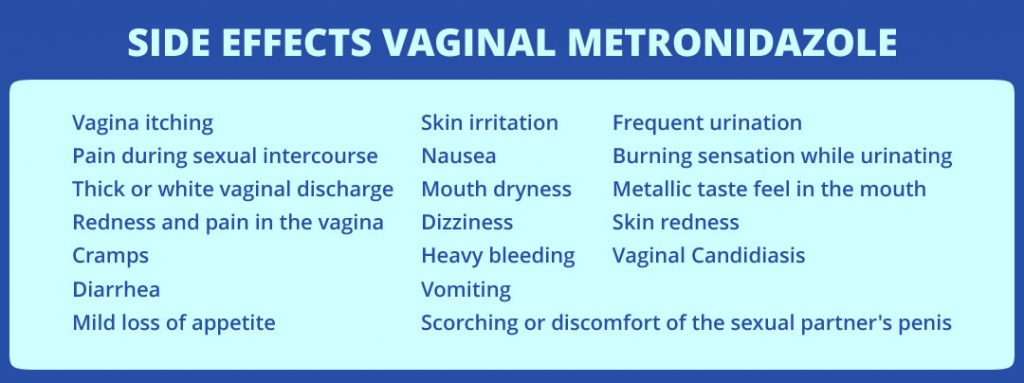Flagyl is alternatively known as Metronidazole and is an antiprotozoal and antibacterial medication used to eliminate bacteria. This medication works by stopping synthesizing the microorganisms’ DNA, stopping reproduction, and causing death. Metronidazole treats various infectious diseases caused by bacteria, including pelvic inflammatory disease and other skin infections. This article discusses using Flagyl for sinus infection and other health solutions. Please continue reading to learn about Flagyl, its uses, dosage forms, and the many infections it treats.
What is Flagyl (metronidazole)
As previously noted, Flagyl is a potent antibiotic that treats several infections caused by bacteria, including skin ulcers, BV, PID, insect bites, and parasitic infections. This medication also treats rosacea, gum infections, and dental abscesses.
Flagyl is a prescription medication that is available in different forms, including oral, vaginal gel, cream, tablet, suppository, and liquid. Metronidazole suppositories are designed to be inserted into the vagina or anus. Flagyl can also be given as an injection, but this can only be done by a qualified healthcare professional.
Need a prescription for Metronidazole?
Get access to a licensed medical professional.
How to use Flagyl
Metronidazole is a prescription medication, so it is crucial to use only as directed by a qualified healthcare professional.
Stay within the dosage recommended by your qualified healthcare specialist, and stay within the recommended duration of use.
Because Metronidazole comes in different forms, there are specific modes of use for each form of the medication.
Oral tablets or capsules can be used with or without food; however, if the medication causes discomfort in your stomach, it’s best to eat something.
The extended-release tablet must be taken one hour before or two hours after eating a meal. This form of Metronidazole must be taken without food.
Shake the oral suspension metronidazole bottle well before use. Use a specialized measuring tool, usually provided with the drug packaging or a measuring syringe. Do not use a kitchen spoon or household cup.
What is sinusitis?
Sinusitis is an infection of the sinuses’ tissue lining, which causes inflammation or swelling. Sinuses are structures in the head that are typically filled with air.
These sinuses can be irritated due to bacterial infections, allergic reactions, and viral infections. The irritation causes swelling and inflammation of the sinuses, blocking and filling them with fluid.
This condition is also called rhinosinusitis and can cause pain and pressure in the face. In addition, sinusitis can cause nasal congestion and other symptoms.

Symptoms of sinusitis
Explaining sinuses
Sinuses are an integral part of the respiratory system. These are four coupled spaces in the head connected by narrow passages.
Sinuses produce the mucus that drains out of the nose’s passages. This helps to keep the nose healthy and free of allergens, germs, and bacteria.
Understanding sinusitis symptoms
There are different ways to categorize sinusitis. The severity, duration, and frequency of occurrence usually categorize this condition.
Furthermore, the bacteria, virus, or fungus causing the disease is pivotal to understanding the type of sinusitis.
Sinusitis infections are categorized into the following:
- Acute
- Subacute
- Chronic
- Recurrent
Acute sinusitis is usually characterized by facial pain or pressure, nasal congestion, drainage, and reduced sense of smell. This sinusitis lasts less than four weeks and is generally triggered by viruses like the common cold and flu.
Subacute sinusitis symptoms last longer than four weeks. Symptoms of this sinusitis can last up to twelve weeks.
Bacteria cause chronic sinusitis, and the infection can last at least 12 weeks.
Recurrent sinusitis occurs more than three times a year and lasts less than fourteen days each time.
Bacteria, fungi, and viruses can cause sinusitis. Viruses like the ones responsible for the common cold and flu typically cause the most sinusitis.
Bacteria can also cause sinusitis, or they can cause infection after a case of viral sinusitis. Bacterial sinusitis is generally characterized by a runny nose, facial pain, and stuffy nose that lasts more than ten days.
Symptoms of the sinusitis infection may abate or improve but then return worse. It is crucial to report problems with your symptoms to your doctor.
Antibiotics and decongestants are used to treat sinusitis caused by bacteria.
Sinusitis caused by fungus is more severe than bacterial sinusitis. This condition is more common in people with weakened immune systems.
Symptoms of sinusitis are similar to allergies, colds, and COVID-19, so telling the difference might be challenging. Typically, the common cold builds, heightens, and dissipates, lasting several days to a week.
Allergies can cause itchy nose, eyes, sneezing, congestion, postnasal drip, and runny nose. Allergies usually don’t cause facial pain like sinusitis does. In addition, COVID-19 may cause symptoms like shortness of breath and fever.
Is Flagyl for sinus infection appropriate?
Flagyl is an antibacterial and antiprotozoal medication that treats bacterial infections by stopping the growth of infectious bacteria at the site of the infection. This medication works by altering the DNA of the bacteria and preventing it from synthesizing, impeding its ability to reproduce. Metronidazole works by eliminating bacteria and causing their death.
Flagyl is prescribed to treat several infections caused by bacteria, including pelvic inflammatory disease, bacterial vaginosis, rosacea, skin infections, and skin ulcers. It is also used as a prevention medication for bacterial and parasitic diseases.
Due to its specific course of action, Metronidazole can only treat infections caused by bacteria. This medication is unsuitable for sinusitis caused by viruses or allergies as its primary mechanism of action is eliminating bacteria and effectively stopping their growth. Flagyl does not treat yeast infections, viral infections and allergies.
Common treatments for sinusitis
Sinusitis infections are easy to treat with different methods and medications. Your healthcare expert will recommend a treatment that effectively combats your symptoms and considers how long you’ve had the infection. There are over-the-counter medications available to treat sinusitis. Treatment options for sinusitis include the following;
- Nasal saline rinses
- Staying hydrated and drinking lots of water
- OTC medications
- Decongestants
Your healthcare provider may recommend the following if your symptoms do not improve in ten days.
- Topical or oral decongestants
- Antibiotics
- Intranasal steroid sprays
Doctors typically treat chronic sinusitis by combating the underlying symptoms. Additional treatment may include the following.
- Topical antihistamine sprays
- Oral antihistamine pills
- Leukotriene antagonists (montelukast)
- Surgery to treat polyps, fungal infections, and structure issues
- Intranasal steroid sprays
Which antibiotics are effective?
Antibiotics are sometimes used to cure sinusitis when bacteria cause it. Antibiotics are medications that eliminate bacteria to maintain a healthy balance in the body. It is crucial to consult your qualified healthcare provider before using antibiotics for sinusitis. Your doctor may recommend the following:
- Augmentin (amoxicillin/clavulanate).
- Amoxicillin.
- Doxycycline.
- Levofloxacin.
- Cefixime.
- Cefpodoxime.
- Clindamycin
Other treatments for chronic sinusitis are listed below.
Corticosteroid pills/shots
Corticosteroid pills/shots help to ease chronic sinusitis, especially for patients with nasal polyps. This medication can trigger adverse events when used for an extended period and is only used to treat severe sinusitis symptoms.
Nasal corticosteroids spray
Nasal corticosteroids spray to treat and prevent inflammation and swelling. Some nasal sprays, including fluticasone, budesonide, mometasone, and beclomethasone, can be purchased without a prescription.
Allergy medications
Allergy medications can ease the symptoms of sinusitis caused by allergies.
Aspirin desensitization
Aspirin desensitization treatment is for patients with sinusitis and nasal polyps from aspirin. Qualified providers may put the patient through larger doses of aspirin to increase their capacity to take the drug.
Saline nasal rinses
Saline nasal rinses are specially designed bottles or pots to help clear the sinuses. Typically, it is a special squeeze bottle or neti pot. Saline nasal spray is also an option.
Surgery
If the sinusitis doesn’t clear after treatment, your doctor may recommend endoscopic sinus surgery. A doctor uses a thin, flexible tube and cutting tools to extract the tissue causing the problem.
How to prevent sinusitis
There are a few ways to reduce the risk of getting sinusitis, including:
- Avoid allergies, including drugs, allergy shots, and other known triggers like dust, pollen, and smoke.
- Rinse your nose with salt water as directed by a qualified healthcare provider.
- Use nasal sprays
- Wash your hands regularly to reduce your risk of getting infected
- Avoid smoking
When to see a doctor for sinusitis
Sinus conditions are relatively easy to manage on your own. Sinusitis may last for up to ten days and disappear without treatment. However, speaking to a qualified healthcare provider as soon as possible is crucial if your symptoms continue.
In addition, people who get this infection more than three times a year should immediately contact their doctors. Speaking to a qualified healthcare provider will help you understand the next steps.
You should immediately contact your doctor or go to an emergency room if you experience the following:
- Fever that is over 103 degrees Fahrenheit/40 degrees Celsius
- Mental changes or confusion
- Pain or inflammation around the eyes
- Vision impairment or changes
- Stiff neck
- Seizures
Read also: Clindamycin vs Flagyl: Interactions, Similarities, Differences, More
Frequently Asked Questions
Flagyl is an antibiotic that treats several bacteria-induced infections, including bacterial vaginosis and PID. This medication works by inhibiting the growth and reproduction of bacteria at the site of the infection, leading to their death. Metronidazole (Flagyl) alters the DNA of the bacteria microorganisms, preventing it from synthesizing and leading to its eventual death.
So, does Flagyl for sinus infection work? Metronidazole does not work for sinusitis caused by allergies or viruses, even though it is a potent antibiotic.
The symptoms of sinusitis are easy to spot. This infection usually causes a runny nose, pressure or pain in the face, postnasal drip, and itchy nose. Your doctor may recommend doing a test after asking about your symptoms. Furthermore, your doctor may check for tenderness in the nose and face to run a diagnosis.
Other diagnostic methods include the following:
Your doctor can insert an endoscopic tool into your nose to see inside the sinuses. An endoscopic tool is a flexible tube with light to help the doctor see inside your sinuses.
Your doctor may also carry out CT or MRI scans that show the details of the nasal area and sinuses. This type of scan helps to focus on the specific cause of chronic sinusitis.
Furthermore, your nasal and sinus samples may be sent to a lab for testing if your sinusitis symptoms don’t ease after treatment.
If allergies cause your sinusitis, your healthcare provider may do an allergy skin test to be sure.
Metronidazole, a medication used to treat infections caused by bacteria or parasites, can cause various adverse events. It’s crucial to be aware of these potential effects and seek medical attention if needed.
Here are some of the common and rare side effects associated with Metronidazole:
Common Side Effects:
- Headache
- Loss of appetite
- Vomiting
- Diarrhea
- Heartburn
- Abdominal cramps
- Constipation
Less Common Side Effects:
- Dizziness
- Nausea
- Metallic taste in the mouth
- Darkening of urine
Rare but Serious Side Effects:
- Confusion
- Trouble speaking
- Nerve damage
- Seizures
- Alcohol intolerance
Remember that individual medication responses can vary, and it’s crucial to consult your qualified medical professional if you experience any unusual symptoms while taking Metronidazole. They can provide adequate guidance and address any concerns you may have.
While Flagyl is not typically the first choice for respiratory infections, it may be prescribed in specific situations. However, speaking to a qualified medical care provider for an accurate diagnosis and treatment is essential.
For respiratory infections, other antibiotics are often preferred. These may include drugs like amoxicillin, azithromycin, or doxycycline, targeted explicitly for respiratory pathogens.
If you suspect a respiratory infection, please seek medical advice promptly. Your doctor will evaluate your symptoms, perform necessary tests, and recommend the most suitable treatment based on the specific type of infection and its severity. Remember to follow their guidance closely to ensure effective management of your condition.
Sinusitis can be pretty bothersome, but the choice of antibiotic drug administration depends on various factors. Here are some commonly prescribed antibiotics for sinusitis infections in adults:
- Amoxicillin: Often used as a first-line treatment for bacterial sinusitis.
- Cefdinir: Another option effective against certain bacteria.
- Clarithromycin: Useful for treating respiratory tract infections.
- Levofloxacin: Sometimes prescribed, but it has serious side effects and should be used cautiously.
- Moxifloxacin: Another option for bacterial sinusitis.
Remember, antibiotics are not always necessary for sinusitis. Most cases clear up on their own without medication. If you suspect a sinusitis infection, consult your healthcare provider for proper evaluation and personalized treatment recommendations.
Sinusitis, an inflammation of the tissues in your sinuses, can cause facial pain, a stuffy or runny nose, and sometimes a fever. While the viruses and bacteria that cause sinusitis are not contagious, the infection itself is not directly spread from person to person. Let’s break it down:
Viral Sinusitis:
Viruses trigger most sinusitis. You can spread the virus, causing viral sinusitis, but not necessarily the full-blown infection itself.
Another person might get sick but may or may not develop sinusitis. These viruses often cause colds, which can sometimes lead to sinusitis.
Bacterial Sinusitis:
If your sinusitis lasts more than 10-14 days, it will likely be bacterial. However, if bacteria cause your infection, you cannot spread it to others.
Other Causes:
Some people experience chronic sinusitis (lasting at least 12 weeks), often due to allergies, tissue growths in the nose, or a deviated septum.
Tobacco smoke, dry air, or polluted air can also trigger sinusitis.
If you’re unsure of the cause, it’s best to avoid close contact with others and consult a doctor.
Flagyl can interact with various other medications and substances. Here are some crucial points regarding metronidazole interactions:
Drug Interactions:
There are 347 drugs known to interact with Metronidazole, including both prescription and over-the-counter medications.
These interactions fall into three categories:
- Major: 13 interactions with significant risks.
- Moderate: 331 interactions that require caution.
- Minor: 3 interactions with minimal impact.
Some common medications that interact with Metronidazole include:
- Adderall
- Aspirin
- Ciprofloxacin (Cipro)
- Duloxetine (Cymbalta)
- Metoprolol
- Tylenol
- Xanax
Alcohol/Food Interactions:
Metronidazole has two known alcohol/food interactions.
It’s advisable to avoid alcohol while taking Metronidazole due to the risk of adverse effects.
The metallic taste associated with Metronidazole can be intensified by alcohol consumption1.
Disease Interactions:
Metronidazole may interact with certain health conditions:
- Colitis
- Blood dyscrasias
- Central nervous toxicity
- Patients undergoing dialysis
- Renal impairment
- Liver disease
- Hepatic impairment
- Sodium imbalance
- Alcoholism





